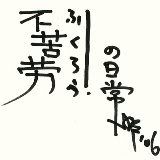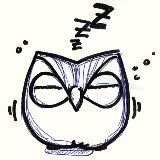- study time: kwaidan 2 -
currently listening to - Water Me (BONNIE PINK)
thought of the day - why are japanese girls pigeon-toed (and yet they walk with heels)?
watched the order of phoenix on 14 july, after celebrating my friend's birthday in Chiba. learned 3 things: 1) you're not supposed to laugh at the funny scenes, or whisper or clap at anytime in the cinema; 2) you're not supposed to talk in the cinema even after the movie has ended, because japanese people are trying their best to read the english letters in the ending credits, and they do not wish to be interrupted (and they finally realise Daniel Radcliffe = Da-ni-e-ru Ra-do-ku-ri-fu after a decade); 3) you should not leave the cinema during the ending credits because it's rude.
damn those japanese girls. they stared at us throughout the entire show, especially when we giggled at the "hem hem" umbridge's appearance in the court, when we ooo-ed at the macho harry and ron, when we clapped at harry's "i'm sorry professor umbridge but I MUST NOT TELL LIES"............ finally they couldn't stand us chit-chatting in the cinema during the ending credits and said, "SHHHHHHHHHHH!! URUSAI!!!"
end of gossip. back to the topic.
*****
the "Yuki-onna" (yuki=snow, onna=woman) is a kind of spirit that takes the appearance of a pale, beautiful lady with long hair. she appears on snowy nights and blends into the snow very well. according to wikipedia, "she sometimes wears a white kimono, but other legends describe her as nude, with only her face, hair, and pubic region standing out against the snow" (hmm.. that's scary).
Yuki-onna (author: Koizumi Yakumo a.k.a Lafcadio Hearn)
In a village of Musashi Province, there lived two woodcutters: Mosaku and Minokichi. At the time of which I am speaking, Mosaku was an old man; and Minokichi, his apprentice, was a lad of eighteen years. Every day they went together to a forest situated about five miles from their village. On the way to that forest there was a wide river to cross; and there was a ferry-boat. Several times a bridge was built where the ferry was; but the bridge was each time carried away by a flood. No common bridge could resist the current there when the river rose.
Mosaku and Minokichi were on their way home, one a very cold evening, when a great snowstorm overtook them. They reached the ferry and found that the boatman had gone away, leaving his boat on the other side of the river. It was no day for swimming, so the woodcutters took shelter in the ferryman's hut - thinking themselves lucky to find any shelter at all. There was no brazier in the hut, nor any place in which to make a fire: it was only a two-mat hut, with a single door, but no window. Mosaku and Minokichi fastened the door and lied down to rest, with their straw rain-coats over them. At first they did not feel very cold, and thought that the storm would soon be over.
The old man almost immediately fell asleep, but the boy, Minokichi, stayed awake a long time, listening to the awful wind and the continual slashing of the snow against the door. The river was roaring and the hut swayed and creaked like a junk in the ocean. It was a terrible storm and the air was becoming colder every moment. Minokichi shivered under his rain-coat. But at last, despite of the cold, he too fell asleep.
He was awakened by a showering of snow in his face. The door of the hut had been forced open, and by the snow-light, he saw a woman in the room - a woman all in white. She was bending over at Mosaku, blowing her breath upon him - her breath was like a bright white smoke.
Almost in the same moment she turned to Minokichi, and stooped over him. He tried to cry out, but found that he could not utter any sound. The white woman bent down over him, lower and lower, until her face almost touched him. She was very beautiful, though her eyes made him afraid. For a little time she continued to look at him. Then she smiled and whispered, "I intended to treat you like the other man. But I cannot help pitying you, because you are so young... You are a pretty boy, Minokichi. And I will not hurt you now. But if you ever tell anybody -- even your own mother -- about what you have seen this night, I shall know it. And then I will kill you... Remember what I say!"
With these words, she turned from him, and passed through the doorway. Then he found himself able to move again. He sprang up and looked out. But the woman was nowhere to be seen. Only the snow was driving furiously into the hut. Minokichi closed the door, and secured it by fixing several billets of wood against it. He wondered if the wind had blown it open, while thinking that he might have only been dreaming, and might have mistaken the gleam of the snow-light in the doorway for the figure of a white woman. But he could not be sure.
He called to Mosaku, and was frightened because the old man did not answer. He put out his hand in the dark and touched Mosaku's face, and found that it was ice cold. Mosaku was stark and dead...
By dawn the storm was over. When the ferryman returned to his station, a little after sunrise, he found Minokichi lying senseless beside the frozen body of Mosaku. Minokichi was promptly cared for, and soon came to himself. But he remained ill for a long time from the effects of the cold of that terrible night. He had been greatly frightened also by the old man's death, but he said nothing about the woman in white. As soon as he got well again, he returned to his calling - going to the forest alone, every morning, and coming back at nightfall with his bundles of wood, which his mother helped him to sell.
One evening, in the winter of the following year, as he was on his way home, he overtook a girl who happened to be traveling by the same road. She was a tall and pretty, and she answered Minokichi's greeting in a voice as pleasant to the ear as the voice of a songbird. Then he walked beside her, and they began to talk. The girl said that her name was Oyuki. She had recently lost both of her parents and she was going to Yedo, where she happened to have some relatives, who might help her to find a job as a servant.
Minokichi was charmed by this strange girl. The more that he looked at her, the prettier she appeared to be. He asked her whether she was married, and she answered, laughingly, that she was single. Then, in return, she asked Minokichi whether he was married or engaged, and he told her that although he had only a widowed mother to support, the question of an "honorable daughter-in-law" had yet to be considered, as he was very young.
After that, they walked on for a long while, without speaking to each other. But as the proverb goes, "Ki ga areba, me mo kuchi hodo ni mono wo iu" (When you wish for it, the eyes can say as much as the mouth). By the time they reached the village, they had become very much pleased with each other. Then, Minokichi asked Oyuki to take a rest at his house. After some hesitations, she went there with him. Minokichi's mother welcomed her, and prepared a warm meal for her. Oyuki behaved so nicely that Minokichi's mother took a sudden fancy to her, and persuaded her to delay her journey to Yedo. And so Yuki never went to Yedo. She remained in the house as an "honorable daughter-in-law."
Oyuki proved a very good daughter-in-law. When Minokichi's mother passed away, some five years later, her last words were words of affection and praises for the wife of her son. And Oyuki bore Minokichi ten children, boys and girls, and all of them were pretty and fair.
The villagers thought Oyuki a wonderful person. Most of the peasant-women age early, but Oyuki, even after having become the mother of ten children, looked as young and fresh as on the day when she had first stepped into the village.
One night, after the children had gone to sleep, Oyuki was sewing by the light of a paper lamp. Minokichi, watching her, said --
"To see you sewing there, with the light on your face, it makes me recall that strange thing that happened when I was eighteen. I then saw somebody as beautiful and fair as you are - indeed, you look exactly like her.."
Without lifting her eyes from her work, Oyuki responded, "Tell me about her... Where did you meet her?"
Then Minokichi told her about the incident in the ferryman's hut, and about the Yuki-onna that had stooped above him, smiling and whispering... and about the silent death of old Mosaku. And he said, "Asleep or awake, that was the only time that I saw a being as beautiful as you. Of course, she was not a human being, and I was afraid of her - very much afraid - but she was so pale!... Till now I'm still not sure if the incident was a dream or reality.."
Oyuki flung down her sewing and rose. Bending over Minokichi she shrieked into his face.
"It was I -- I -- I! Yuki it was! And I told you then, that I would kill you if you ever said one word about it! ... If it wasn't for the children, I would've killed you this moment! And now you had better take very, very good care of them..... For if they ever have a reason to complain about you, I will treat you as you deserve!"
Even as she screamed, her voice gradually turned thinner, like a crying of wind. And finally, she melted into a bright white mist that shuddered away through the smoke-hole...
Never again was she seen.
*****
sigh.. shouldn't have copy-pasted from the internet. this translation's weird.. tried correcting many of the mistakes but i gave up.. and i thought i'd start doing my assignment after blogging, but i think i've used up all my power.......
so this is the story of the japanese spirit, Yuki-onna. it's a little similar to another japanese folklore, Tsuru no Ongaeshi (english title A Grateful Crane/The Crane Woman). scarier version? heh.. because the crane doesn't kill anyone she's just a crane without any special powers except for transforming and weaving..
okay i'm tired and hungry, and i have a physics assignment to hand in tomorrow. oh, and there's english test. this time it's more challenging than TOEIC because we have to memorise all the passages that we've read in our english textbook (you know, fill in the blanks. that's hard..), and write reviews about them, in JAPANESE.
man..... that's why japanese can't read "Daniel Radcliffe" in 30 seconds!!!!!!!!!!
*****
1) urusai - literally it means "you're very noisy!". in this context it means "shut the fuck up!!!" =p
2) two-mat - 2 tatami mats. i.e. very small.
3) Yedo = Edo (former Tokyo).
4) tsuru (鶴) - crane
5) ongaeshi (恩返し) - the act of repaying a person's kindness. eg Ghibli's Neko no Ongaeshi (The Cat Returns).
thought of the day - why are japanese girls pigeon-toed (and yet they walk with heels)?
watched the order of phoenix on 14 july, after celebrating my friend's birthday in Chiba. learned 3 things: 1) you're not supposed to laugh at the funny scenes, or whisper or clap at anytime in the cinema; 2) you're not supposed to talk in the cinema even after the movie has ended, because japanese people are trying their best to read the english letters in the ending credits, and they do not wish to be interrupted (and they finally realise Daniel Radcliffe = Da-ni-e-ru Ra-do-ku-ri-fu after a decade); 3) you should not leave the cinema during the ending credits because it's rude.
damn those japanese girls. they stared at us throughout the entire show, especially when we giggled at the "hem hem" umbridge's appearance in the court, when we ooo-ed at the macho harry and ron, when we clapped at harry's "i'm sorry professor umbridge but I MUST NOT TELL LIES"............ finally they couldn't stand us chit-chatting in the cinema during the ending credits and said, "SHHHHHHHHHHH!! URUSAI!!!"
end of gossip. back to the topic.
*****
the "Yuki-onna" (yuki=snow, onna=woman) is a kind of spirit that takes the appearance of a pale, beautiful lady with long hair. she appears on snowy nights and blends into the snow very well. according to wikipedia, "she sometimes wears a white kimono, but other legends describe her as nude, with only her face, hair, and pubic region standing out against the snow" (hmm.. that's scary).
Yuki-onna (author: Koizumi Yakumo a.k.a Lafcadio Hearn)
In a village of Musashi Province, there lived two woodcutters: Mosaku and Minokichi. At the time of which I am speaking, Mosaku was an old man; and Minokichi, his apprentice, was a lad of eighteen years. Every day they went together to a forest situated about five miles from their village. On the way to that forest there was a wide river to cross; and there was a ferry-boat. Several times a bridge was built where the ferry was; but the bridge was each time carried away by a flood. No common bridge could resist the current there when the river rose.
Mosaku and Minokichi were on their way home, one a very cold evening, when a great snowstorm overtook them. They reached the ferry and found that the boatman had gone away, leaving his boat on the other side of the river. It was no day for swimming, so the woodcutters took shelter in the ferryman's hut - thinking themselves lucky to find any shelter at all. There was no brazier in the hut, nor any place in which to make a fire: it was only a two-mat hut, with a single door, but no window. Mosaku and Minokichi fastened the door and lied down to rest, with their straw rain-coats over them. At first they did not feel very cold, and thought that the storm would soon be over.
The old man almost immediately fell asleep, but the boy, Minokichi, stayed awake a long time, listening to the awful wind and the continual slashing of the snow against the door. The river was roaring and the hut swayed and creaked like a junk in the ocean. It was a terrible storm and the air was becoming colder every moment. Minokichi shivered under his rain-coat. But at last, despite of the cold, he too fell asleep.
He was awakened by a showering of snow in his face. The door of the hut had been forced open, and by the snow-light, he saw a woman in the room - a woman all in white. She was bending over at Mosaku, blowing her breath upon him - her breath was like a bright white smoke.
Almost in the same moment she turned to Minokichi, and stooped over him. He tried to cry out, but found that he could not utter any sound. The white woman bent down over him, lower and lower, until her face almost touched him. She was very beautiful, though her eyes made him afraid. For a little time she continued to look at him. Then she smiled and whispered, "I intended to treat you like the other man. But I cannot help pitying you, because you are so young... You are a pretty boy, Minokichi. And I will not hurt you now. But if you ever tell anybody -- even your own mother -- about what you have seen this night, I shall know it. And then I will kill you... Remember what I say!"
With these words, she turned from him, and passed through the doorway. Then he found himself able to move again. He sprang up and looked out. But the woman was nowhere to be seen. Only the snow was driving furiously into the hut. Minokichi closed the door, and secured it by fixing several billets of wood against it. He wondered if the wind had blown it open, while thinking that he might have only been dreaming, and might have mistaken the gleam of the snow-light in the doorway for the figure of a white woman. But he could not be sure.
He called to Mosaku, and was frightened because the old man did not answer. He put out his hand in the dark and touched Mosaku's face, and found that it was ice cold. Mosaku was stark and dead...
By dawn the storm was over. When the ferryman returned to his station, a little after sunrise, he found Minokichi lying senseless beside the frozen body of Mosaku. Minokichi was promptly cared for, and soon came to himself. But he remained ill for a long time from the effects of the cold of that terrible night. He had been greatly frightened also by the old man's death, but he said nothing about the woman in white. As soon as he got well again, he returned to his calling - going to the forest alone, every morning, and coming back at nightfall with his bundles of wood, which his mother helped him to sell.
One evening, in the winter of the following year, as he was on his way home, he overtook a girl who happened to be traveling by the same road. She was a tall and pretty, and she answered Minokichi's greeting in a voice as pleasant to the ear as the voice of a songbird. Then he walked beside her, and they began to talk. The girl said that her name was Oyuki. She had recently lost both of her parents and she was going to Yedo, where she happened to have some relatives, who might help her to find a job as a servant.
Minokichi was charmed by this strange girl. The more that he looked at her, the prettier she appeared to be. He asked her whether she was married, and she answered, laughingly, that she was single. Then, in return, she asked Minokichi whether he was married or engaged, and he told her that although he had only a widowed mother to support, the question of an "honorable daughter-in-law" had yet to be considered, as he was very young.
After that, they walked on for a long while, without speaking to each other. But as the proverb goes, "Ki ga areba, me mo kuchi hodo ni mono wo iu" (When you wish for it, the eyes can say as much as the mouth). By the time they reached the village, they had become very much pleased with each other. Then, Minokichi asked Oyuki to take a rest at his house. After some hesitations, she went there with him. Minokichi's mother welcomed her, and prepared a warm meal for her. Oyuki behaved so nicely that Minokichi's mother took a sudden fancy to her, and persuaded her to delay her journey to Yedo. And so Yuki never went to Yedo. She remained in the house as an "honorable daughter-in-law."
Oyuki proved a very good daughter-in-law. When Minokichi's mother passed away, some five years later, her last words were words of affection and praises for the wife of her son. And Oyuki bore Minokichi ten children, boys and girls, and all of them were pretty and fair.
The villagers thought Oyuki a wonderful person. Most of the peasant-women age early, but Oyuki, even after having become the mother of ten children, looked as young and fresh as on the day when she had first stepped into the village.
One night, after the children had gone to sleep, Oyuki was sewing by the light of a paper lamp. Minokichi, watching her, said --
"To see you sewing there, with the light on your face, it makes me recall that strange thing that happened when I was eighteen. I then saw somebody as beautiful and fair as you are - indeed, you look exactly like her.."
Without lifting her eyes from her work, Oyuki responded, "Tell me about her... Where did you meet her?"
Then Minokichi told her about the incident in the ferryman's hut, and about the Yuki-onna that had stooped above him, smiling and whispering... and about the silent death of old Mosaku. And he said, "Asleep or awake, that was the only time that I saw a being as beautiful as you. Of course, she was not a human being, and I was afraid of her - very much afraid - but she was so pale!... Till now I'm still not sure if the incident was a dream or reality.."
Oyuki flung down her sewing and rose. Bending over Minokichi she shrieked into his face.
"It was I -- I -- I! Yuki it was! And I told you then, that I would kill you if you ever said one word about it! ... If it wasn't for the children, I would've killed you this moment! And now you had better take very, very good care of them..... For if they ever have a reason to complain about you, I will treat you as you deserve!"
Even as she screamed, her voice gradually turned thinner, like a crying of wind. And finally, she melted into a bright white mist that shuddered away through the smoke-hole...
Never again was she seen.
*****
sigh.. shouldn't have copy-pasted from the internet. this translation's weird.. tried correcting many of the mistakes but i gave up.. and i thought i'd start doing my assignment after blogging, but i think i've used up all my power.......
so this is the story of the japanese spirit, Yuki-onna. it's a little similar to another japanese folklore, Tsuru no Ongaeshi (english title A Grateful Crane/The Crane Woman). scarier version? heh.. because the crane doesn't kill anyone she's just a crane without any special powers except for transforming and weaving..
okay i'm tired and hungry, and i have a physics assignment to hand in tomorrow. oh, and there's english test. this time it's more challenging than TOEIC because we have to memorise all the passages that we've read in our english textbook (you know, fill in the blanks. that's hard..), and write reviews about them, in JAPANESE.
man..... that's why japanese can't read "Daniel Radcliffe" in 30 seconds!!!!!!!!!!
*****
1) urusai - literally it means "you're very noisy!". in this context it means "shut the fuck up!!!" =p
2) two-mat - 2 tatami mats. i.e. very small.
3) Yedo = Edo (former Tokyo).
4) tsuru (鶴) - crane
5) ongaeshi (恩返し) - the act of repaying a person's kindness. eg Ghibli's Neko no Ongaeshi (The Cat Returns).






0 Comments:
Post a Comment
<< Home